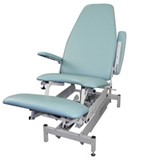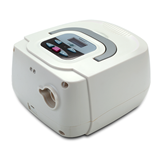Professor Gilbert's appointment was announced this week at a meeting of Australia's chief medical officers.
"In the event Ebola-infected patients reach Australia, hospitals need to have clear, safe and uniform protocols in place," says Professor Gilbert.
"We need to ensure that healthcare workers are skilled and well-practiced to manage people infected with this disease – for their safety, and the safety of the entire community."
Specifically, Professor Gilbert will chair a newly-created expert committee advising the Australian Health Protection Prime committee, comprising state and territory chief health officers, and the Communicable Disease Network, Australia (CDNA).
The scope of Professor Gilbert's role covers protocols for issues such as the management of Ebola cases from their point of entry to Australia, their clinical assessment and care, contact tracing, and personal protective equipment used by healthcare workers.
Situation so far
"There is currently no vaccine and cure for the disease caused by Ebola virus, which causes severe fever and muscle pain, vomiting, diarrhoea, and in some cases, organ failure and severe bleeding," says Professor Gilbert.
"Currently, the only way to stop it is to break the chains of infection."
The real number of people who are currently sick with Ebola is unknown, but almost ten thousand cases, including forty-eight hundred deaths, have been reported so far, largely in the West African nations of Guinea, Liberia and Sierra Leone.
A tiny fraction of these cases – 18 people – have been treated for Ebola infection in Europe and the United States.
For Australia, the Ebola threat comes from two sources: inbound travellers from the Ebola-affected countries of Guinea, Liberia and Sierra Leone; and Australian healthcare workers on the frontlines of the epidemic in West Africa.
Currently, between 15 and 30 people are arriving in Australia each week from the Ebola-affected countries of Sierra Leone, Liberia and Guinea.
Sydney's Westmead Hospital will be the sole treatment facility for treating any cases that reach NSW.
Defence strategies
To date, up to 50 emergency and intensive care staff at Westmead Hospital have taken part in training in the proper use of personal protective gear, with ''the numbers increasing day by day'', according to Professor Gilbert.
Australia's Chief Medical Officer Professor Chris Baggoley said a number of Ebola defence strategies were being considered.
Professor Baggoley has told the ABC that after the arrivals were screened, it was important they knew the right places to go for help if they started displaying Ebola symptoms.
"What we are keen to do is not have people at risk go to general practice," he said.
"We're keen to make sure there are mechanisms to make sure they go to designated hospitals wherever possible."
Professor Gilbert's appointment comes as Department of Foreign Affairs (DFAT) officials have told a Senate committee that both the US and the UK had asked Australia to send personnel to help fight Ebola in West Africa.
The Government has so far refused to send health workers to Africa, arguing that it would be unable to evacuate them if they became infected with the deadly virus.
Professor Lyn Gilbert is an infectious diseases physician and clinical microbiologist, with expertise in infections of public health importance, including vaccine preventable diseases and healthcare–associated infections.
She is Director of Infection Prevention and Control at Westmead Hospital, and a senior investigator with the Marie Bashir Institute for Emerging Infections and Biosecurity Institute (MBI) at the University of Sydney.















